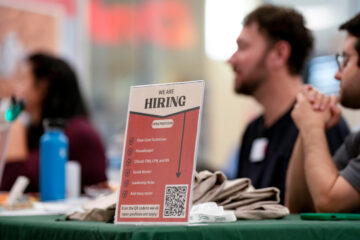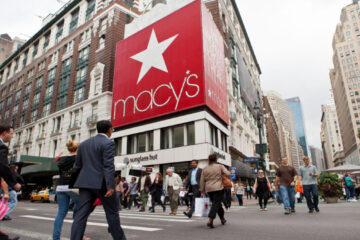Real estate has tumbled in recent months, with the FTSE Nareit REIT index slipping 11.95% year to date.
Real estate investments have struggled recently, with the FTSE Nareit REIT index falling 11.95% year to date.
But investors often view real estate as a hedge against inflation, which is particularly relevant now, with consumer prices soaring 8.3% in the 12 months through April.
So you may not be shocked by answers to a question in a Deutsche Bank survey of more than 560 investors.
The bank asked, should inflation remain between 3% and 5% over the next decade, which asset class would you most want to buy and hold over the period?
The bank offered only these options, which are followed by the percentage of respondents choosing each of them.
· Property 43%
· Developed-market equities 33%
· Gold 15%
· Cash 4%
· Developed-market credit 3%
· Developed-market government bonds 2%
· Cryptocurrencies 1%
No Economic Downturn?
Presumably if inflation is as high as 3% to 5%, the Federal Reserve isn’t raising rates high enough to push the economy into a downturn.
So it’s not hard to envision real estate and stocks doing reasonably well during that period.
Gold, of course, is often used as a hedge against inflation. So it could certainly do well in the bank’s scenario.
Jim Reid, Deutsche Bank’s head of thematic research, noted in the survey results that equities’ win over gold came despite the fact that gold hugely outperformed equities during the steep inflation the 1970s.
Meanwhile, 61% of respondents said the Fed will try to get inflation back to its 2% target, even if that means triggering a recession. And 39% believe the Fed will tolerate above-target inflation if that means avoiding a recession.
Soft Landing
Of course the Fed hopes to engineer a “soft landing,” bringing inflation down without causing recession.
But Harvard economist Larry Summers has noted that at no time in the past 65 years has inflation stood above 4%, unemployment stood below 5%, and the economy failed to enter recession within the next two years.
Unemployment registered 3.6% in April.
Many respondents appear to believe the equation Summers cited will hold. A total of 78% predicted recession will hit by the end of 2023. That’s up from 61% in April.
Respondents expect U.S. inflation to average 3.1% over the next five years.
As for stocks, only 26% of respondents think developed market equities have bottomed out (within a few percentage point) for the next three to six months.
When it comes to bubbles, on a scale of zero to 10, with zero meaning no bubble and 10 meaning an extreme bubble, respondents on average gave bitcoin a 7.4 and U.S. technology stocks a 5.9.


